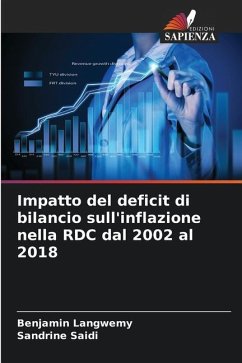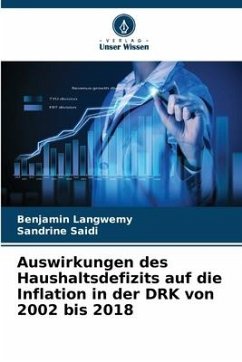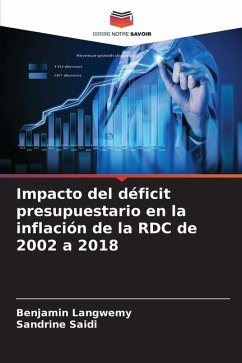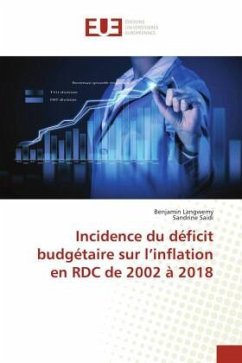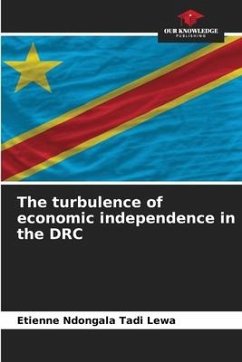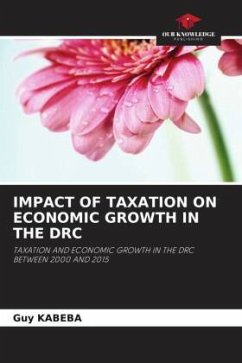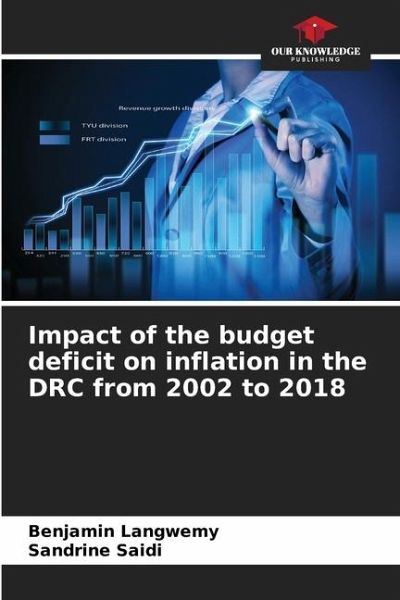
Impact of the budget deficit on inflation in the DRC from 2002 to 2018
Versandkostenfrei!
Versandfertig in 6-10 Tagen
29,99 €
inkl. MwSt.

PAYBACK Punkte
15 °P sammeln!
It is essential to maintain the general level of prices to safeguard purchasing power, otherwise people's lives will suffocate. In a specific context, the DRC is experiencing a number of instabilities. With spending at times crowding out development, it is important to keep an eye on the variation in each index, which could lead to a monetary haemorrhage. This is why, after a decade of suspicions about deviations in the management of public funds, we took part in empirical verification of the existing relationship between the budget deficit and the inflation rate, but also the latter with othe...
It is essential to maintain the general level of prices to safeguard purchasing power, otherwise people's lives will suffocate. In a specific context, the DRC is experiencing a number of instabilities. With spending at times crowding out development, it is important to keep an eye on the variation in each index, which could lead to a monetary haemorrhage. This is why, after a decade of suspicions about deviations in the management of public funds, we took part in empirical verification of the existing relationship between the budget deficit and the inflation rate, but also the latter with other macroeconomic factors. Analysis of the results of our study revealed that the exchange rate and the money supply have a positive impact on the general price level; net credit to the state has a negative impact on the general price level; while the budget balance has no impact on inflation. Thus, we have seen that in addition to monetary factors, real factors also affect the general price level.



